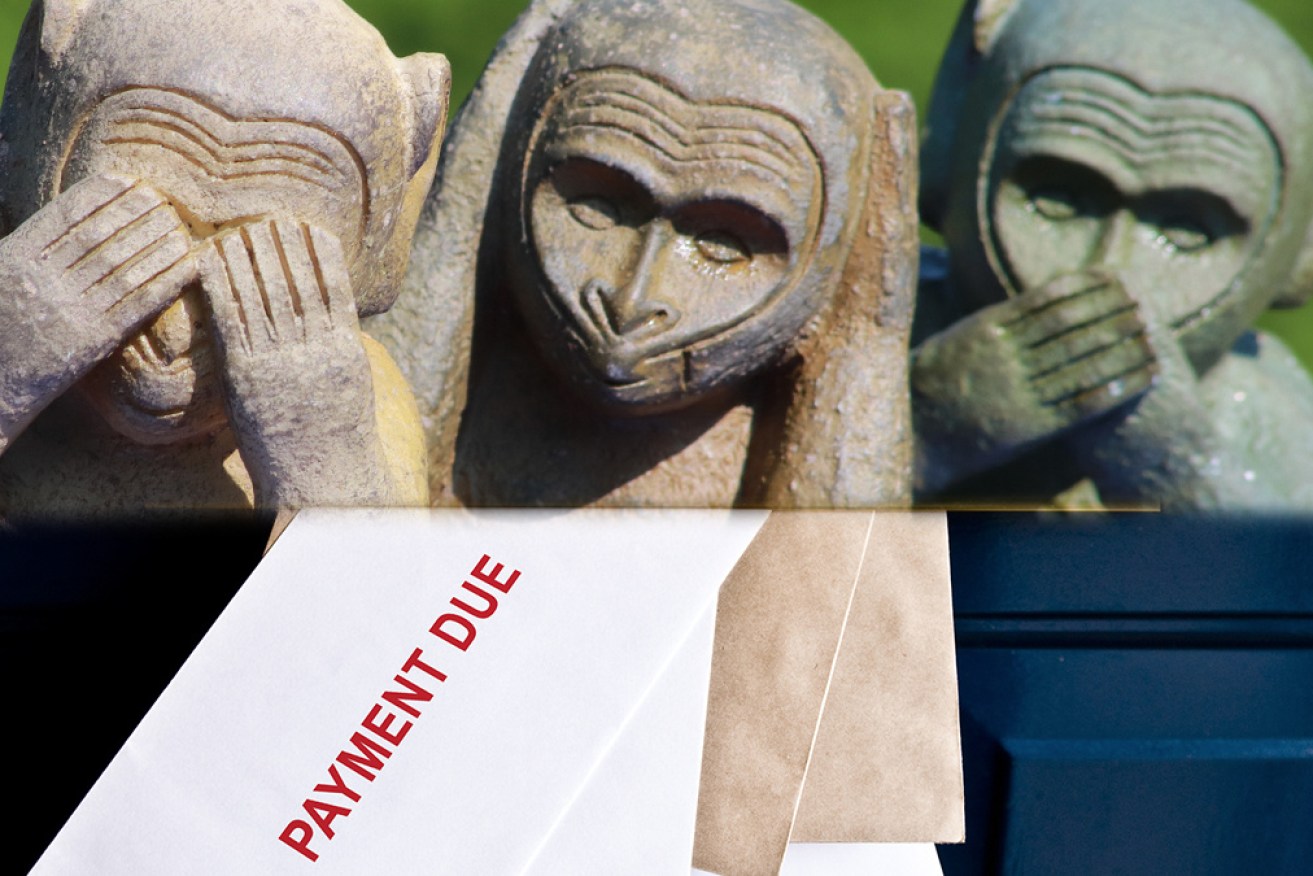One-quarter of Australians are ignoring their debts


A large number of Australians are simply ignoring their debts, rather than taking steps to pay them off. Photo: The New Daily
Around one quarter of Australians choose to ignore their debt rather than take decisive action to pay it off, research by ING has found.
The bank found 25 per cent of the population don’t want to talk about their debt despite ABS data showing it’s a problem affecting more than 70 per cent of households.
And the reason so many people are avoiding their money woes is because managing their finances is a daunting task.
The research found that just under half of working Australians were embarrassed by their debts, while a further 37 per cent said they were a cause of anxiety.
“If you read into that a bit further, it’s because people feel about powerless,” ING head of corporate affairs David Breen told The New Daily.
We have a quarter of people who think that they won’t ever get out of debt – and that would be worrying.’’
Ironically, these people regularly find themselves worse off than if they simply acted on their debt situation earlier, Mr Breen said.
Credit card debts provide a great example. Someone with multiple credit cards will find themselves paying interest at different rates – some higher than others.
Taking the time to check those repayment rates and consolidating them into a single, low-interest product could save hundreds – if not thousands – of dollars.
The same situation can play out in other debt products too, Mr Breen cautioned.
“Invariably, the ignorance means your debt can be sitting in the worst possible place, which in turn makes it more difficult to pay down,” he said.
Let’s talk about debt, baby
ING’s research found most people would prefer to discuss their health (68 per cent) or relationship problems (58 per cent) than talk about debt with their peers.
Laura Higgins, senior executive leader with MoneySmart (ASIC’s financial literacy arm), told The New Daily that attitude is a big part of the problem.
“If we want to encourage people to change their behaviour when it comes to money, I think we do need to have conversations about money,” she said.
“Most Australians carry debt of some kind, whether it’s a mortgage, a student loan, something business related or a credit card or payday loan.
“The more we talk about the fact that this is something everyone is doing and normalising that conversation the better.”
But many Australians don’t feel confident in their financial literacy skills, which makes putting off action a more attractive option.
Fixing the problem
Most Australians should be able to improve their financial position by taking action, Ms Higgins said.
But for many, knowing how to best tackle the issue is difficult, and support is often needed.
“The national debt helpline, 1800 007 007, is a great place to start,” she said.
“It’s not just for when you’re in real trouble; it can be for when you’re concerned about your financial situation.”
Those feeling more confident in their financial capabilities can instead jump straight in and conduct a stocktake of their finances – working out where all their money is, how much they owe, and where they can make savings.
“You have to be really honest, and be quite comprehensive,” Ms Higgins said.
“Go into quite forensic detail about where you’re money is going, and then look for changes you can make.”
Finally, Ms Higgins urged consumers not to use a new financial product – such as another credit card – to pay off their existing debts.








